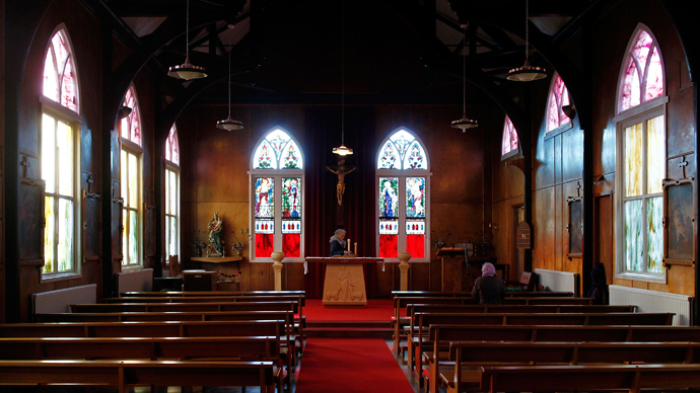Kansas governor, 2 churches reach deal on allowing in-person worship

Kansas has reached an agreement with two churches to extend a temporary restraining order that allows them to hold in-person worship services of more than 10 people despite a statewide stay-at-home order.
Governor Laura Kelly agreed with First Baptist Church of Dodge City and Calvary Baptist Church of Junction City to extend the order exempting them from the ban from May 2 to May 16.
In an agreed motion filed Saturday and pending official approval from a judge, the two parties allowed the extension due to the possibility that the governor will extend her overall executive order restricting in-person gatherings past the planned May 3 expiration date.
“A one-time 14-day extension of the TRO would allow parties adequate time, if needed, to conduct limited discovery and briefing in the event the Plaintiffs believe new restrictions present in a new Executive Order are not constitutionally sound,” says the agreed motion.
Kelly explained in a statement that she still was convinced that her executive order against all mass gatherings would eventually be vindicated.
“While I am confident that we have the law on our side, the agreement with these two churches will allow us to move forward and focus our efforts on mitigating the spread of the disease and working to restart the economy,” she stated, according to AP.
The Alliance Defending Freedom, a conservative law firm representing the two churches, approved of the agreement but took issue with Kelly’s interpretation of the events.
“The governor claims that she and her administration are ‘confident that we have the law on our side,’ but if this were true, the governor would not be consenting to an agreed motion,” stated ADF Senior Counsel Ryan Tucker.
“We reserve the right to continue litigating this matter if Gov. Kelly does not follow through with appropriately amending her mass gathering ban. This is a victory for the churches whose First Amendment freedoms the governor has repeatedly disrespected throughout this ongoing litigation.”
Days before Easter Sunday, Kelly issued an executive order expanding an earlier ban on gatherings of over 10 people so that it included religious services.
In a statement defending the measure, Kelly explained that it was a “difficult decision” to reach, but considered it necessary to curb the spread of coronavirus.
“As Holy Week gets underway — and with Kansas rapidly approaching its projected ‘peak’ infection rate in the coming weeks — the risk for a spike in COVID-19 cases through church gatherings is especially dangerous,” said Kelly.
“I’ve said repeatedly during this crisis that we will adjust to circumstances as they develop to make sure we do everything we can to protect Kansans.”
The churches filed suit in response, with United States District Court Judge John W. Broomes of the District of Kansas granting them temporary relief from the order.
“… while these executive orders begin with a broad prohibition against mass gatherings, they proceed to carve out broad exemptions for a host of secular activities, many of which bear similarities to the sort of personal contact that will occur during in-person religious services,” concluded Broomes.
“Plaintiffs have made a substantial showing that development of the current restriction on religious activities shows religious activities were specifically targeted for more onerous restrictions than comparable secular activities.”




























